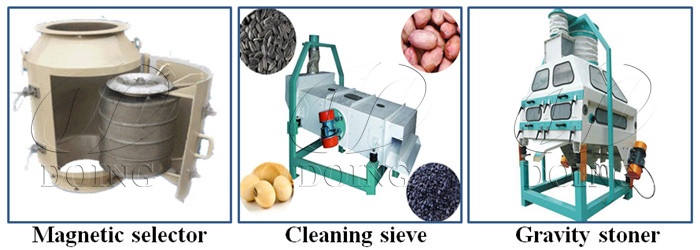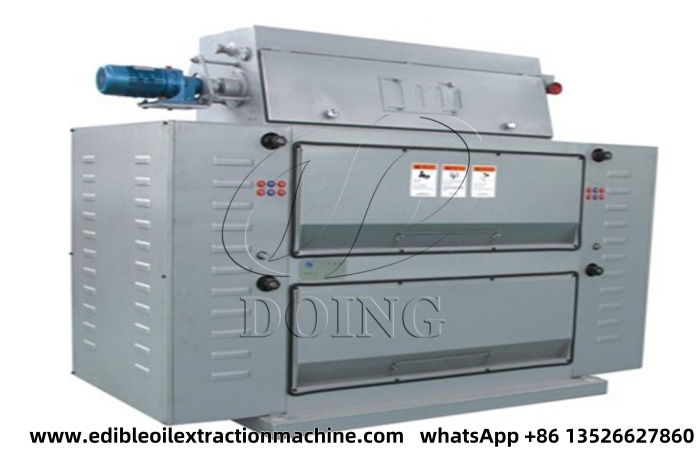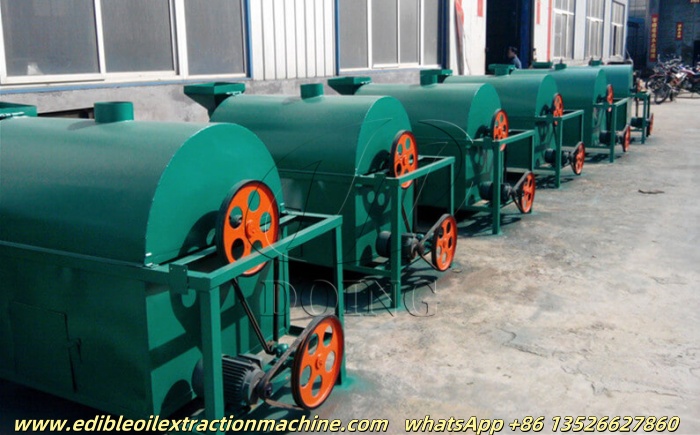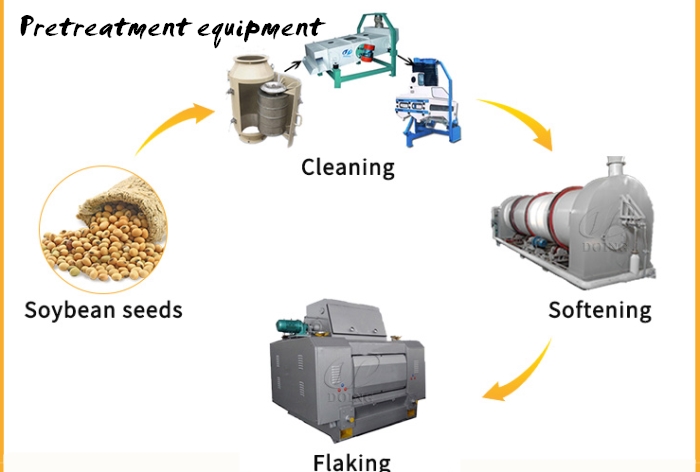 Tel/WhatsApp
Tel/WhatsApp

Doing Holdings Co., Ltd

Doing Holdings Co., Ltd

Edible oil, an essential component of daily diets across the globe, is obtained through a meticulous production process. The journey from raw materials to the final bottled product involves several stages, among which the pretreatment process holds paramount importance. This article delves into the significance of the pretreatment process in edible oil production, highlighting its impact on quality, safety and overall efficiency.
The main goal of the pretreatment process in edible oil production is to improve the quality and purity of the edible oil. It starts with selecting and cleaning the raw materials to remove any impurities (such as dust, dirt, stones or damaged particles). This initial step is crucial as it prevents contaminants from entering the subsequent processing stages and negatively affecting the quality of the edible oil produced and the efficiency of the edible oil production process.

Cleaning equipment for pretreatment process in edible oil production
After cleaning, some raw materials need to be shelled, such as sunflower seeds, peanuts, cotton seeds and sesame seeds. If they are pressed or solvent extraction directly without shelling, the shell will absorb some of the oil, resulting in a lower oil yield. After shelling, the oil-containing part of the kernel is easier to extract, thereby increasing the oil yield.

Oilseed shelling equipment
In addition, the raw materials undergo processes such as drying and toasting. Drying reduces the moisture content in the raw materials, preventing bacterial growth and ensuring the longevity of the oil. On the other hand, toasting not only gives the oil a rich flavor, but also helps in oil extraction by making the raw materials more brittle and easier to grind. This careful preparation ensures that the extracted oil is of high quality and free of unpleasant odors, colors and tastes.

Oilseed roastng equipment
Moreover, the pretreatment process in edible oil production can also reduce the levels of free fatty acids (FFA) in the oil, which can influence the taste, shelf life and nutritional quality of the oil. Lower FFA levels are generally preferred for producing higher-quality edible oils.
Besides quality assurance, the pretreatment process in edible oil production also plays a vital role in improving the safety and stability of edible oils. A key aspect is the removal of anti-nutritional factors, toxins or enzymes present in certain oilseeds. These factors can negatively affect the quality of the oil, for example through oxidation or rancidity. Pretreatment helps to eliminate or reduce these harmful factors, ensuring that the final product is safe to consume.
An efficient pretreatment process in edible oil production can significantly increase the overall productivity. Among them, pretreatment steps such as crushing help break down the cell walls of the raw materials, thereby increasing the efficiency of edible oil production. Heating the raw materials can also soften them, making the oil easier to extract.

Soybean pretreatment equipment
In conclusion, the pretreatment process in edible oil production is the cornerstone of edible oil production and is extremely important for a number of reasons. It guarantees the quality and purity of the final product, ensuring consumer satisfaction and compliance with food safety standards. It safeguards public health by mitigating health risks associated with anti-nutritional factors and oxidation. Moreover, from an economic perspective, it improves edible oil production efficiency and achieves greater profits while being environmentally conscious. If you have further questions about the importance of the pretreatment process in edible oil production, welcome to consult Henan Glory Company at any time, we are honored to answer your questions!